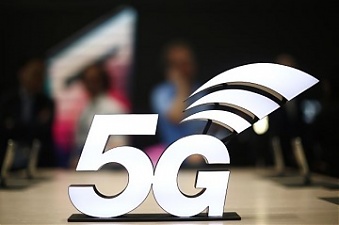Competition, Estonia, Markets and Companies, Technology
International Internet Magazine. Baltic States news & analytics
Saturday, 13.12.2025, 01:19
Competition Authority: Estonia should auction 5G licenses in small blocks
 Print version
Print version |
|---|
"In this way, frequency authorizations for five or ten megahertz at a time have been issued in other European Union member states. A solution like this will enliven competition not only among the three big mobile communications operators but will offer an opportunity for actors with a new business model to develop a 5G network in Estonia. The expected area of use of 5G is significantly broader and more diverse than just increasing data communication speeds," the Competition Authority said on Thursday.
According to the Competition Authority, the development of the communication services to be offered depends on the way 5G networks are established. One option, which in great probability is preferred by the owners of large nationwide mobile networks, is to establish a 5G network on the basis of an existing network and as a complement to it. A second direction of development different from it is to establish a new network as a standalone for the provision of 5G services, considering the choices to become available with the new standards.
In the latter case, the owners of existing 4G networks have no technological advantage. It is business models looking to the future that are competitive, the Competition Authority said.
According to the guidelines of the European Commission, the frequency band should be divided into blocks of sufficient size preferably 80-100 megahertz wide. The Estonian Competition Authority finds that effective use of the frequency band will not be prevented by the blocks to be put to auction being substantially smaller than the section of the frequency band that each business operator will acquire in the end. With the terms and competitions of the tender equal conditions can be ensured for all participants and fragmentation and ineffective use of the frequency band prevented.
The director general of the Competition Authority, Mart Ots, said that the state should be consistent in trusting the market.
"When communications companies have been left the freedom to plan their network in a given frequency band on their own and the obligation to develop has not been considered necessary in the terms of the competition, hope in that respect has been placed on competition, which will presumably ensure nationwide coverage of the mobile communications network. Likewise it should be assumed that competition for 5G authorizations will ensure effective use of said frequency band, as the bidder with the best business model will win," he said.
Ots said it is not mandatory for the state to prescribe precisely in what manner the frequency rights to be issued will be used.
"Whether a specific business operator buys one, four or twelve 10 MHz authorizations should be determined by the balance between demand and supply," Ots said.
The Competition Authority published its stance concerning the public competition for frequency authorizations in the 3,410-3,800 MHz band, as a result of which the winners of the authorizations are to start establishing 5G networks in Estonia.
Before the publication of its stance, the Competition Authority sent a draft of it for opinions to the Estonian Association of Information Technology and Telecommunications, the Ministry of Economic Affairs and Communications and the company OU Levikom, whose application served as basis for the Competition Authority for analyzing the subject.
It said that from said feedback, no substantive obstacles to putting said frequency band to auction in Estonia by smaller blocs were revealed. At the same time, the Competition Authority advised the ministry to consider the aforementioned solution also in the preparation of the upcoming distribution of a 700 MHz frequency band.
The Tallinn Circuit Court at the beginning of April suspended the public competition for 5G frequency authorizations in Estonia until a judgement has been rendered on lawsuit filed by OU Levikom. The company challenged the public 5G frequency auction in court on the grounds that the frequency ranges were to be distributed only to mobile operators. Previously, the court had suspended the auction temporarily citing the challenge lodged by Levikom.
According to Levikom CEO Peep Poldsamm, the essence of 5G is the provision of services such as the Internet of Things (IoT), industrial robots, self-driving cars and telemedicine, for which the most important aspects are the network's response speed and security of connection.'
"Those who believe that 5G is once again all about smart phones and thus automatically belongs to mobile network operators are wrong," Poldsamm has said.
The Ministry of Economic Affairs and Communications announced in January that the public competition for 5G frequencies will be open to all communications companies interested in it and the starting price will be 1.6 million euros. The price has been determined in accordance with the Electronic Communications Act and considering that radio frequencies are a limited state resource, the ministry said.








 «The Baltic Course» Is Sold and Stays in Business!
«The Baltic Course» Is Sold and Stays in Business!

